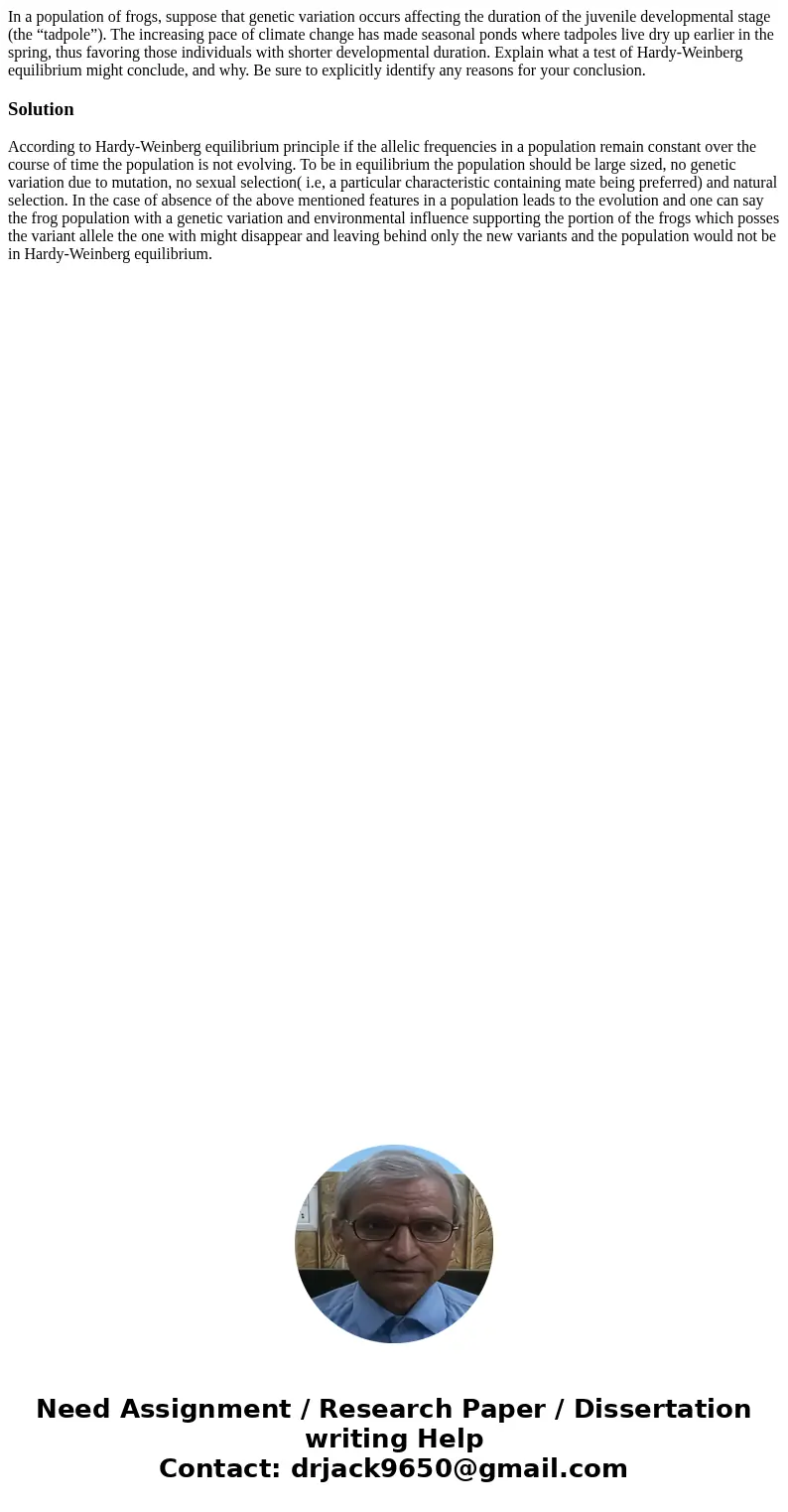In a population of frogs suppose that genetic variation occu
In a population of frogs, suppose that genetic variation occurs affecting the duration of the juvenile developmental stage (the “tadpole”). The increasing pace of climate change has made seasonal ponds where tadpoles live dry up earlier in the spring, thus favoring those individuals with shorter developmental duration. Explain what a test of Hardy-Weinberg equilibrium might conclude, and why. Be sure to explicitly identify any reasons for your conclusion.
Solution
According to Hardy-Weinberg equilibrium principle if the allelic frequencies in a population remain constant over the course of time the population is not evolving. To be in equilibrium the population should be large sized, no genetic variation due to mutation, no sexual selection( i.e, a particular characteristic containing mate being preferred) and natural selection. In the case of absence of the above mentioned features in a population leads to the evolution and one can say the frog population with a genetic variation and environmental influence supporting the portion of the frogs which posses the variant allele the one with might disappear and leaving behind only the new variants and the population would not be in Hardy-Weinberg equilibrium.
 Homework Sourse
Homework Sourse